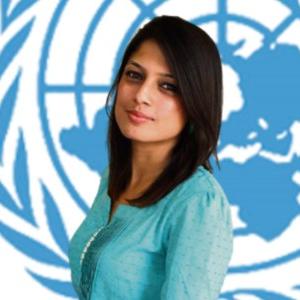Nepal Youth Summit empowers youth voices, calls for national and global actions on key issues facing young people
13 August 2024
Nepal Youth declaration presented to the Prime Minister, urging inclusion in decision making, skills development and climate action ahead of United Nations 'Summit of the Future'
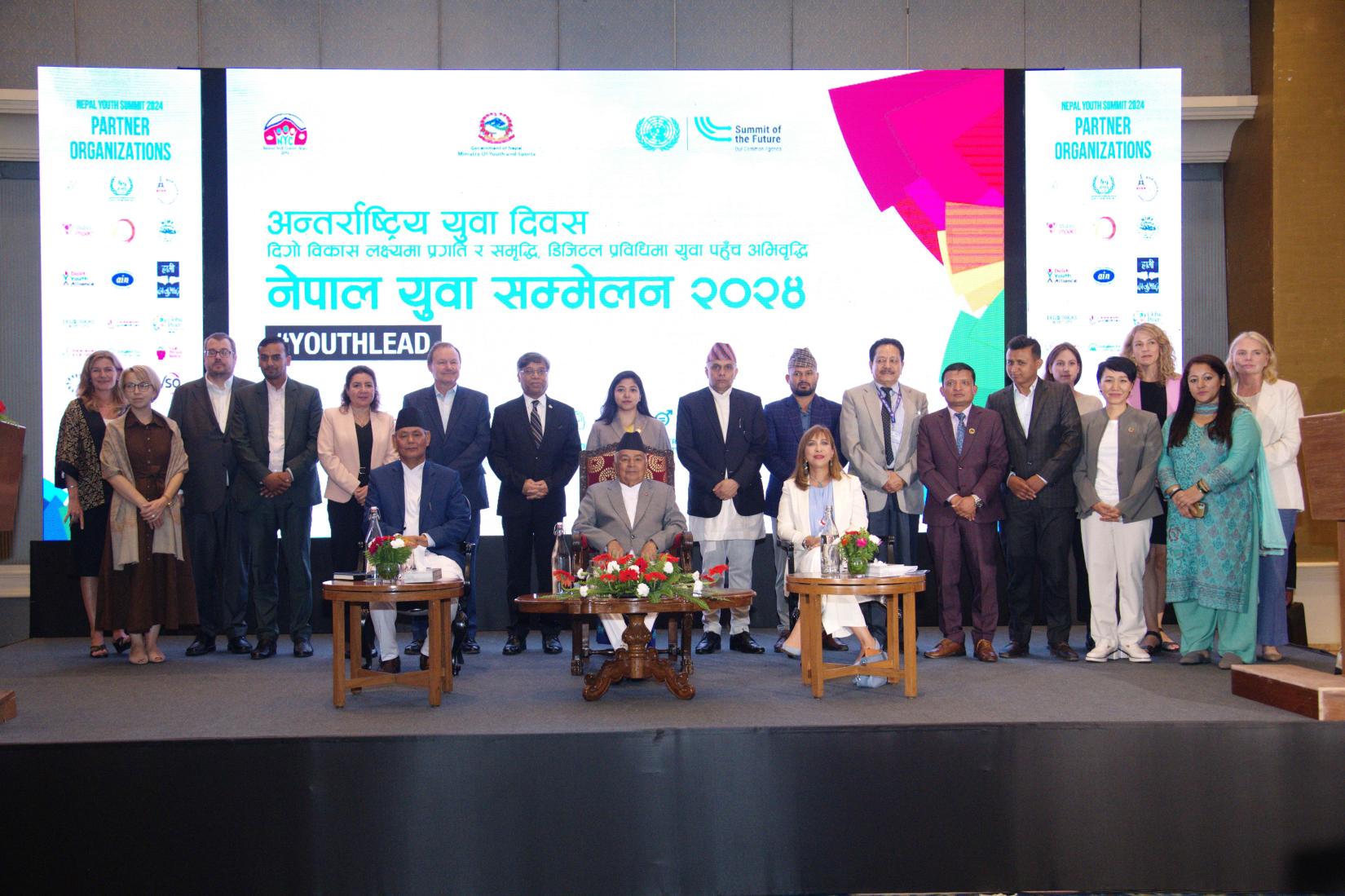
13 August, Kathmandu: The Government of Nepal’s Ministry of Youth and Sports, along with the National Youth Council, in collaboration with the United Nations in Nepal and supported by civil society organizations, hosted the Nepal Youth Summit in celebration of International Youth Day.
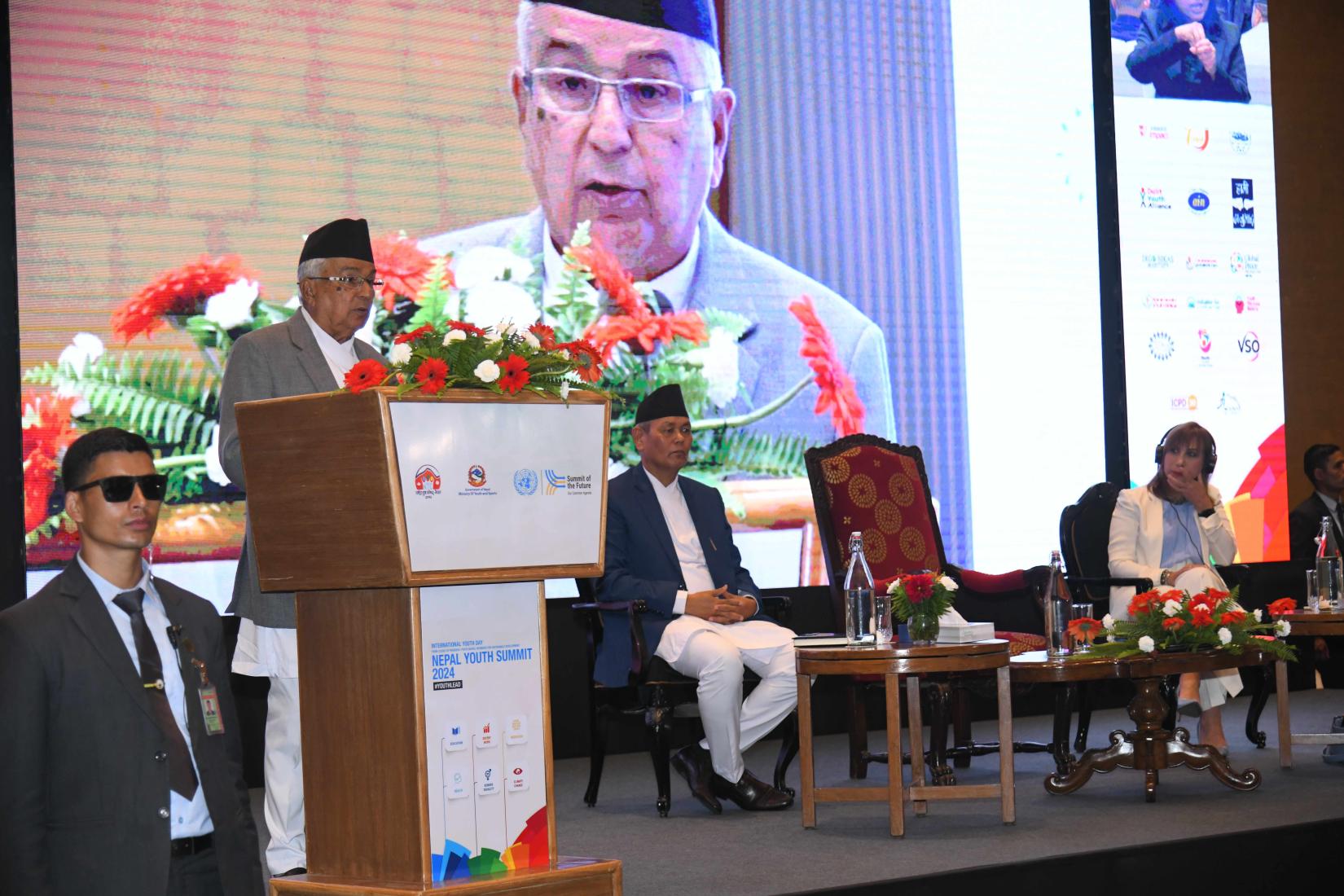
The summit, inaugurated on 12 August 2024 by the Rt. Honorable President of Nepal, Mr. Ram Chandra Poudel, and Minister of Youth and Sports, Mr. Teju Lal Chaudhary convened over 170 young leaders selected through extensive consultations with youth representatives from Nepal's seven provinces, involving hundreds of youth. The summit focused on six critical themes: Education and Digitization, Health, Migration, Decent Work and Social Protection, Climate Change, and Agri-Food Systems, providing a platform for young voices to address the issues that matter most to them.
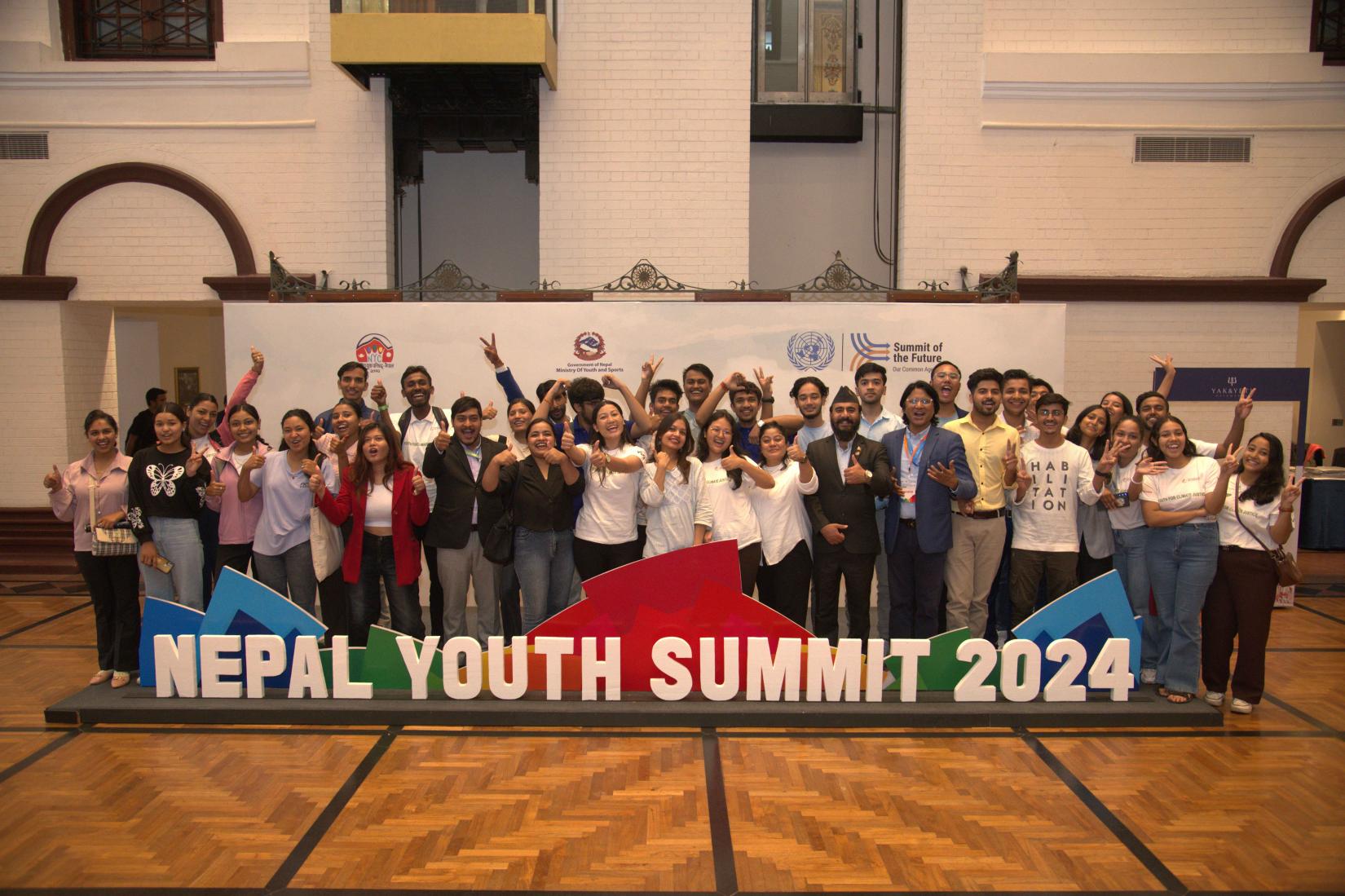
The Nepal Youth Summit was organized in preparation for the upcoming ‘Summit of the Future,’ scheduled to take place in New York on 22-23 September. World leaders, including a high-level delegation from Nepal, will gather at the United Nations to adopt the Pact for the Future, which includes a Declaration on Future Generations advocating for enhanced youth participation at all levels.
In his address, Rt. Honorable President of Nepal, Mr. Ram Chandra Poudel, emphasized the importance of youth involvement in national development, highlighting the need for an environment that allows young people to fully exercise their political, economic, social, and cultural rights and implementing policies that create opportunities for them to contribute significantly to the nation’s development is crucial,”
The two-day Nepal Youth Summit concluded with the presentation of a Youth Declaration to the Rt. Honorable Prime Minister of Nepal, Mr. K P Sharma Oli, during the closing ceremony. This declaration will contribute to the Pact for the Future, outlining actions and commitments from member states to build a more resilient global community for present and future generations.
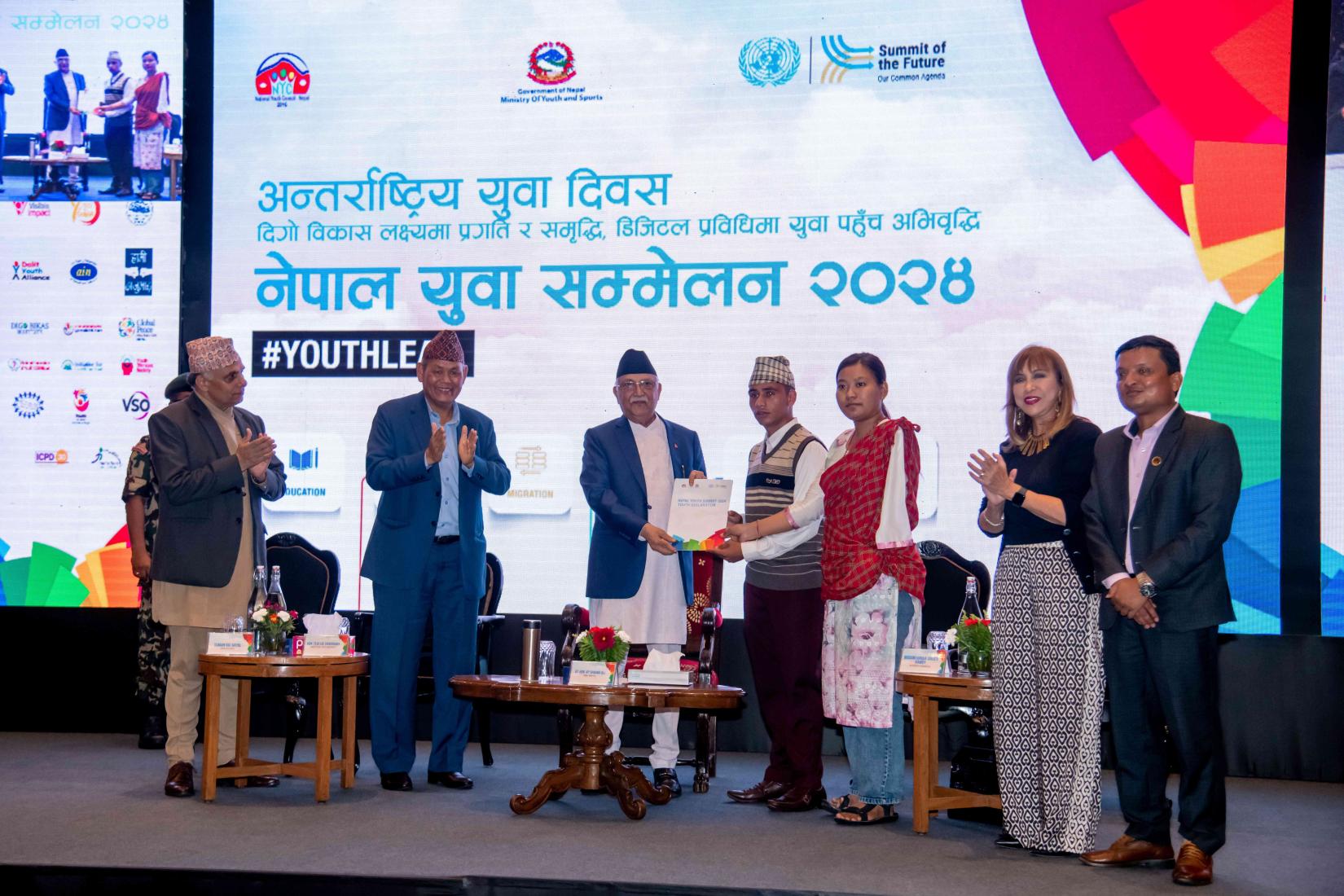
The declaration also urged leaders to accelerate efforts to ensure access to skills and services that empower young people to reach their full potential; to create social and economic opportunities that drive youth development as Nepal advances toward middle-income status; to remove structural and persistent barriers, including harmful practices affecting women, girls, young people with disabilities, and those at risk of being left behind; and to take effective climate action for a clean, healthy, and sustainable environment.
Upon receiving the Youth Declaration, Rt. Honorable Prime Minister of Nepal, Mr. K P Sharma Oli, reaffirmed his commitment to conveying the hopes and aspirations of Nepali youth at the Summit of the Future in September. The PM also stressed on the crucial need to reduce poverty and create job opportunities for youth to meet the SDGs by 2030 and to obtain successful LDC Graduation.
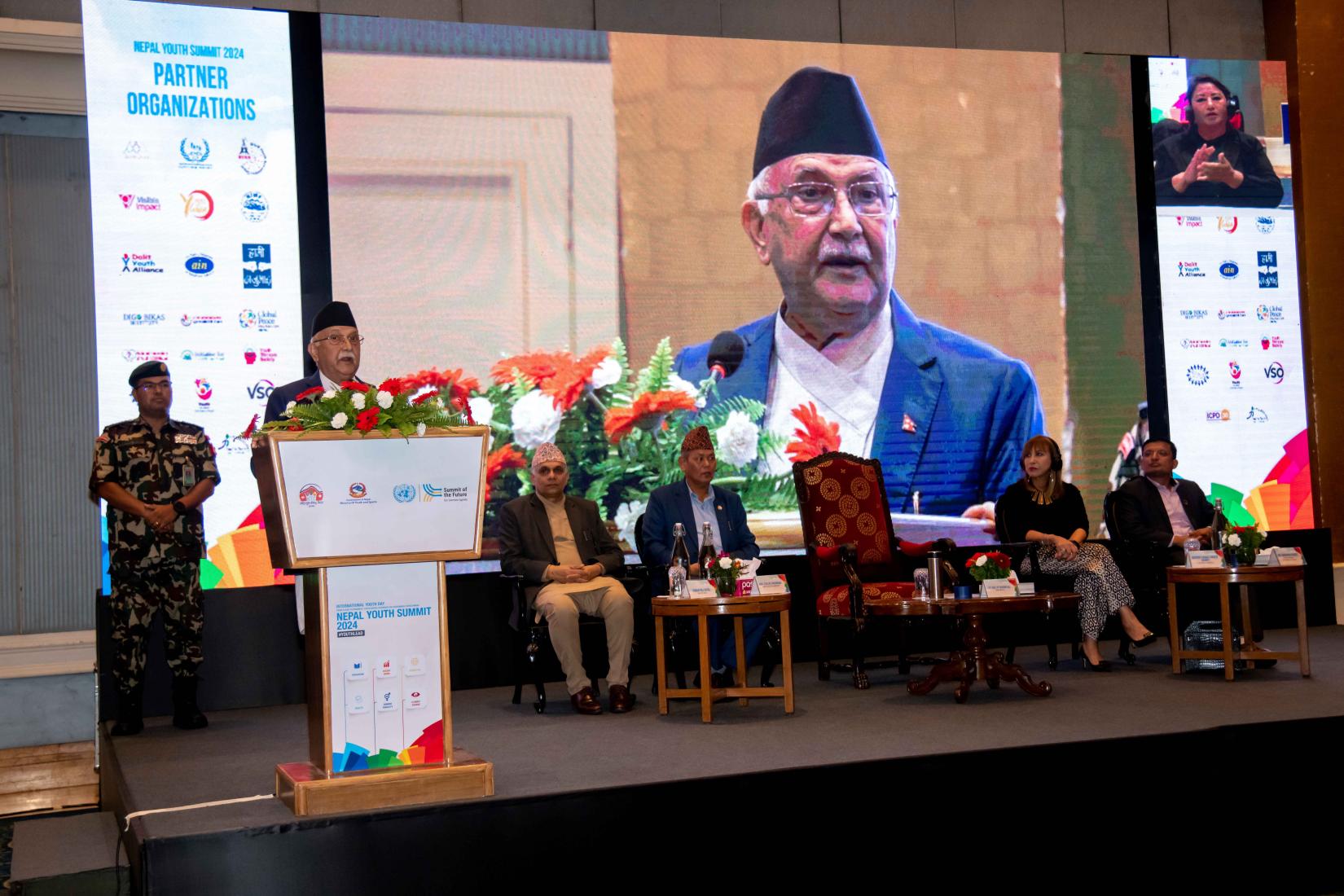
The UN Resident Coordinator in Nepal, Madam Hanaa Singer Hamdy emphasized meaningful participation of youth in decision-making, access to essential resources, and investment in skills and innovation for young people to have the power to drive economic growth, advance gender equality, combat climate change, and build a prosperous, sustainable future for all.
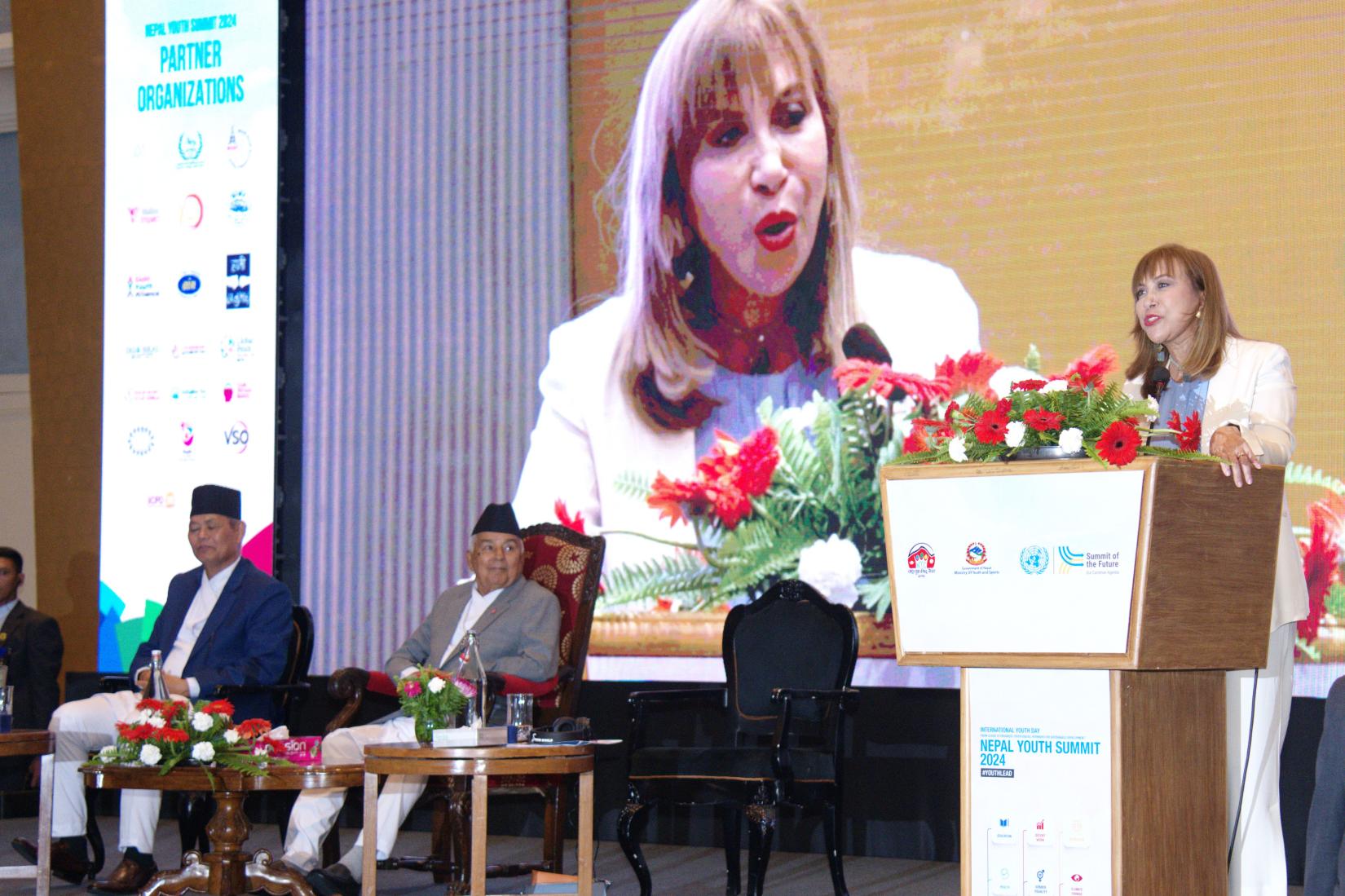
The Nepal Youth Summit was preceded by youth consultations across all seven provinces, aimed at strengthening the knowledge, skills, and capacities of youth participants in areas such as education, health, migration, social protection, gender equality, climate change, and more.
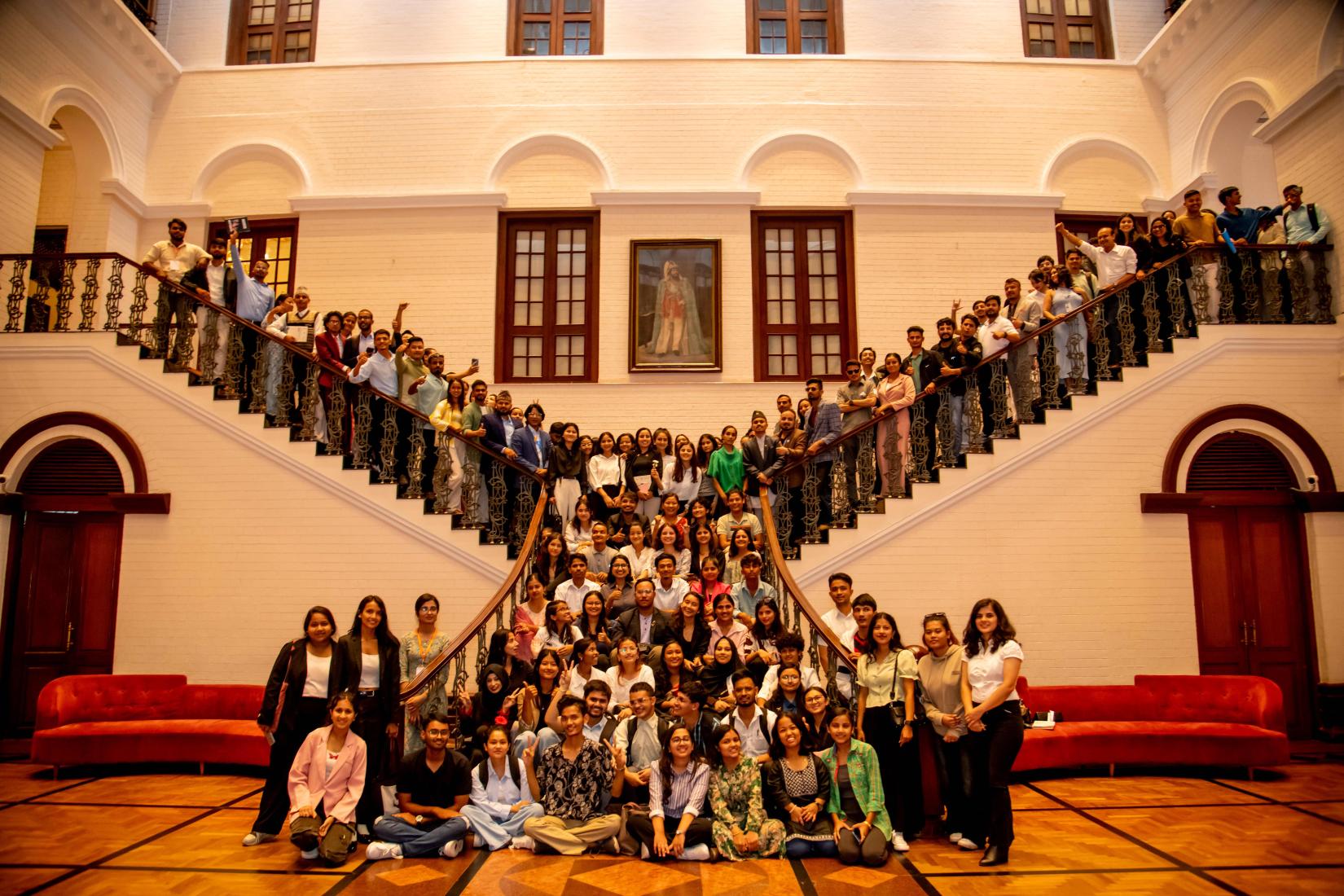
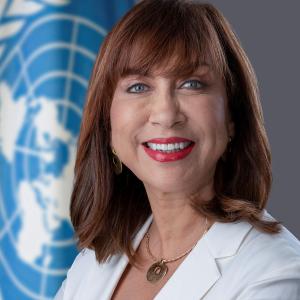
Hanaa Singer-Hamdy
Prior to this, she held several senior management positions in UNICEF offices across the world, including as the Associate Regional Director in Geneva and as Country Representative for Syria, Nepal, Kazakhstan and Azerbaijan.
In Syria, she provided strategic leadership to one of the largest protection crises on the global stage – successfully scaling up programmes through an integrated package of high impact interventions in health, nutrition, water and sanitation, education and child protection - increasing the reach of UNICEF’s work to the most vulnerable children including in besieged and hard-to-reach areas.
As UNICEF Chief in Nepal, she pioneered strategic programmes for scaling up sanitation, adolescents and multisectoral nutrition programmes, establishing strategic new alliances resulting in the government adopting national action plans. She has also led humanitarian programmes in Burundi and Haiti, and as a regional emergency advisor for CEE/CIS countries coordinated setting up cross border humanitarian operations to Afghanistan ,from central Asia, and Iraq,from south Turkey. She also provided technical support to emergency preparedness programmes in the North Caucasus, CEE/CIS countries .
Ms. Singer-Hamdy holds a Master's degree in Political Sociology and a Bachelor's degree in Political Science from the American University in Cairo, Egypt. She obtained a diploma in “Planning and Management of Decentralized Development Projects” from Bradford University in the United Kingdom. Ms. Singer-Hamdy has engaged in academia and research in political sociology and international relations at the American University of Cairo and at the Sadat’s Academy for Management Sciences, Faculty of Political Science of Cairo University.
